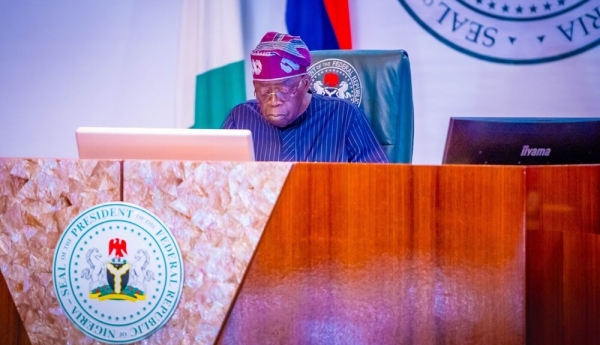President Bola Tinubu has directed all Ministries, Departments, and Agencies (MDAs) to immediately halt the procurement of foreign goods and services that are available locally in a bid to strengthen the naira and stimulate the Nigerian economy.
Tinubu issued the directive on Monday at the Federal Executive Council (FEC) meeting held at the State House in Abuja,
Tinubu, at the FEC meeting, unveiled the “Nigeria First Policy” targeted at promoting local content, building national pride, and reversing the outflow of public funds to foreign markets.
“This policy beckons a new era of local content enterprise, self-belief and national pride,” Tinubu told cabinet members at the meeting.
He reaffirmed his administration’s commitment to economic reform and self-reliance.
According to Tinubu, the nation could no longer afford to enrich foreign supply chains while local industries suffer from underutilisation and neglect.
“We will make what we use and use what we make — not as a slogan, but as a national commitment,” he added.
The president praised recent reforms which he said were beginning to bear fruit, including the removal of fuel subsidies, investments in infrastructure, and improvements to the business climate.
These, he noted, have led to rising reserves, increased oil output, and renewed investor confidence, with multi-billion-dollar commitments from companies such as Shell, Total, ExxonMobil, and Saudi-based SALIC.
He also mentioned the government’s prioritisation of agriculture as a strategic sector for economic growth and poverty alleviation.
Referring to the National Sugar Master Plan II launched in 2024, Tinubu identified the sugar industry as a key example where backward integration is being enforced to reduce dependence on imports.
He urged greater discipline and execution to scale domestic production.
However, Tinubu lamented the lack of full participation by the private sector in harnessing the opportunities created by the administration’s reforms.
He attributed this partly to a system that has historically rewarded dealmaking over real investment. “We must end this,” he said.
“Public funds should not enrich intermediaries who export value instead of creating it.”
To operationalise the new policy, Tinubu instructed the Bureau of Public Procurement (BPP) to immediately revise its guidelines to favour local producers and establish a “Local Content Compliance Framework” for all government procurements.
A register of qualified Nigerian manufacturers and service providers is also to be maintained by the BPP.
Tinubu further ordered that all deployed procurement officers should revert to the BPP as the supervising agency.
Furthermore, no ministry, department or agency will henceforth be allowed to purchase foreign goods or services where local alternatives exist unless a waiver is obtained from the BPP.
Tinubu directed that contracts for goods and services not available locally must include plans for technology transfer, local production, or skill development.
MDAs are also expected to carry out an immediate audit of their procurement plans and align them with the new directives, with breaches attracting penalties, including cancellation of procurements and disciplinary action.
“Let this day mark the beginning of a new era of local enterprise, self-belief, and national pride,” President Tinubu declared.


